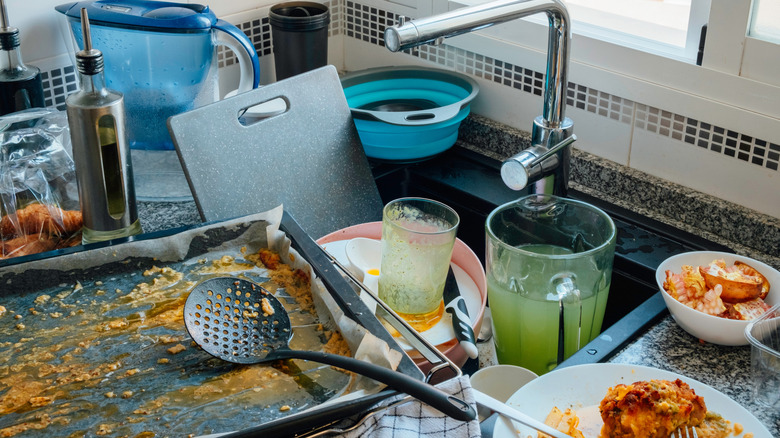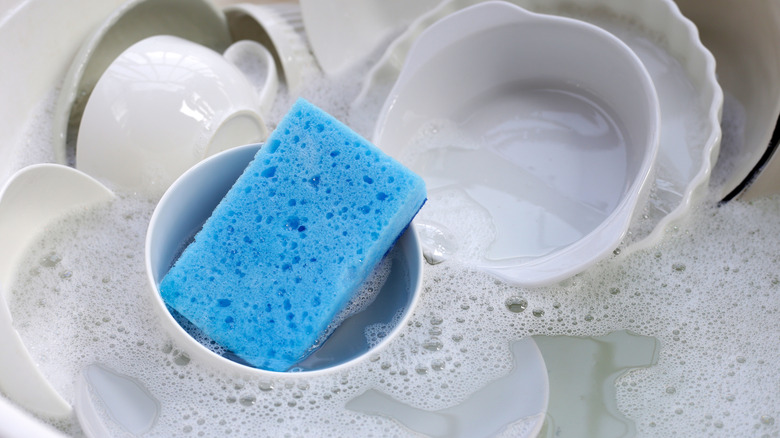The Common Dish Cleaning Practice That Actually Just Makes Everything Dirtier
There's nothing quite like a big home-cooked meal to feed the soul and bring people together. Unfortunately, most meals require multiple dishes to be dirtied. From pots and pans to plates, silverware, and cups, the stack can quickly become daunting. And while cleaning as you go along is an admirable goal in theory, in practice it's not so easy. This means that you'll likely end up with a sink full of dishes at the end of the night. Many people choose to let their dishes soak in a sink full of hot water overnight to loosen up stubborn, stuck-on food. But this isn't the most effective or sanitary way to get them clean.
While the act of soaking your dishes can help unstick leftover messes, this practice may be making your dishes dirtier on a microscopic level. Your sink is one of the germiest places in your home, made worse by the common mistakes that everyone makes with the kitchen sink, like not disinfecting it regularly. It's filled with all sorts of bacteria like Salmonella and E. coli, even before filling it with dirty dishes and water. Once you add these components, the result is a perfect environment for bacteria to multiply quickly. This bacteria won't just stay in your sink basin — it can infiltrate nearby surfaces like the faucet and even the sponge that is conveniently located near (or worse, in) the sink, potentially spreading bacteria to otherwise clean items.
Soaking dishes can lead to illness — here's what to do instead
Not only does soaking dishes overnight cause bacteria to multiply and spread, but this smorgasboard of germs can even make it into your food and potentially lead to illness. Common symptoms include vomiting, nausea, diarrhea, and more. Afterward, the dishes and sink may look clean and rid of stuck-on food, yet remain covered in microscopic germs unless you follow up with sanitization.
While generations of dish-washers have soaked overnight in the past, there are far more efficient and sanitary ways to make washing your dishes easier. The best method is to get your dishes into the dishwasher as soon as possible. Scrape off any food scraps and place the dishes directly into the machine, skipping any rinsing unless you're dealing with a large amount of solid material. It's best to run the dishwasher daily after loading (even if it's not a full load) to avoid offensive odors and the rapid growth of bacteria.
In many cases, there's no reason to soak your dishes before using the dishwasher. However, if you do have to soak thanks to a particularly burnt-on or baked-on mess, there are some best practices to minimize bacterial growth and spread. First, scrape off as much food as you can beforehand. Fill the sink with hot, soapy water, and only soak the dishes for a maximum of 30 minutes. Then immediately either handwash the dishes or rinse and load them into the dishwasher. If soaking larger items, such as pots or pans, consider filling the dish itself with hot, soapy water to localize the mess and help contain the bacteria. Don't forget to scrub down and sanitize the sink regularly, too.

